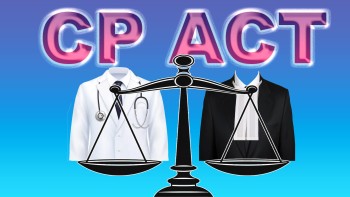Taking patient’s consent is a doctor’s legal and ethical obligation. Patient consent must be voluntary and informed and can be implicit or explicit. It is a fundamental acknowledgement of patients' autonomy and freedom of choice. Consent given and taken appropriately enhances and strengthens the doctor-patient trust. It is legally obligatory in India to obtain written informed consent of the patient for every medical intervention.
To clear doubts and uncertainties on the various legal aspects of patients consent and to reduce medical errors and the legal issues arising out of improper consent The Pacemakers will publish a series of blogs on Patients Consent.The content of this series has been taken from "SOP on Patients Consent",a comprehensive and legally compliant document on patients consent in India which is outcome of a unique collaborative deliberation done every year by a large number of doctors, hospitals, and medical societies. This SOP is annually reviewed and updated as both law and medicine are dynamic and keep on changing.A first of its kind in the world, it is initiated and facilitated by the Institute of Medicine & Law (IML).
SOP on Patients Consent 2023 series (Part-3) -
Minor / Incompetent / Emergency Patient - Proxy Consent
01. Consent and Age
I. Child patient below 12 years - Take consent of the parents / guardian only.
II. Child patient between 12 to 18 years - Take consent of the patient as well as the parents / guardian.
III. Adult patient above 18 years - Take consent of the patient only.
02. Proxy consent 'giver' for minor / incompetent / emergency patient:
I. Spouse / blood relatives / any other relative, preferably a first-degree relative (not mandatory)
II. Biological parents / guardian (both legal as well as de-facto) of the child.
III. Even the teacher / warden who brings the child to the doctor / hospital but only in an emergency.
IV. Consent of any one of the parents of the child is valid and binding even if there may be difference between both the parents.
V. Person not connected or related with the patient, including police personnel, who may have brought such a patient (e.g., in accident cases).
VI. Medical Superintendent / Head of the hospital or such other responsible person in institutions / hospitals.
VII. Person/s expressly indicated by the patient to give consent in accordance with his / her Advance Medical Directive (AMD) as prescribed by the Supreme Court.
03. Taking proxy consent:
I. Counsel / explain in the language understood by the proxy consent giver. Follow all other protocols of taking consent of the patient as far as possible.
II. Verify and record specifically the name, address, telephone number and relationship with the patient of the person from whom proxy consent has been obtained. It is advisable and not mandatory to take a self-attested photocopy of the proof of identity (having photo, age and signature) of the person giving proxy consent for the purpose of traceability. Match the signatures on the consent with that on the proof of identity.
III. Record specifically the reason/s for obtaining proxy consent in the consent.
IV. Further directions / consent during the treatment may be sought from such a person.
04. Patient's orientation seems doubtful - Follow the protocol for incompetent patients rather than treating the patient as a competent one (Advisable).
05. Incompetent Patient - Means and includes minors; a person with mental illness who lacks the mental capacity or suffers from cognitive impairment or decline; unconscious or anesthetized with alteration of sensorium; under the influence of drugs, sedatives, alcohol or substances that cloud consciousness or judgment; in such pain and agony that the patient is not in a position to give consent or complete other formalities; and so on. A disoriented patient is an incompetent patient.
06. A patient in labour with severe pain is competent to give consent. But in appropriate cases proxy consent can also be taken.
07. In case the patient becomes competent / conscious during the course of treatment / intervention, take patient's consent, if possible.











Recent comments
Latest Comments section by users
Guest
Oct 30, 2024
- The Pacemakers zevtfklf http://www.g3if7j6242r1li935394yu72qxjbkp2rs.org/ [url=http://www.g3if7j6242r1li935394yu72qxjbkp2rs.org/]uzevtfklf[/url] azevtfklf